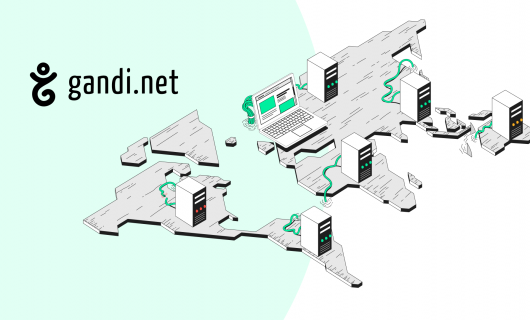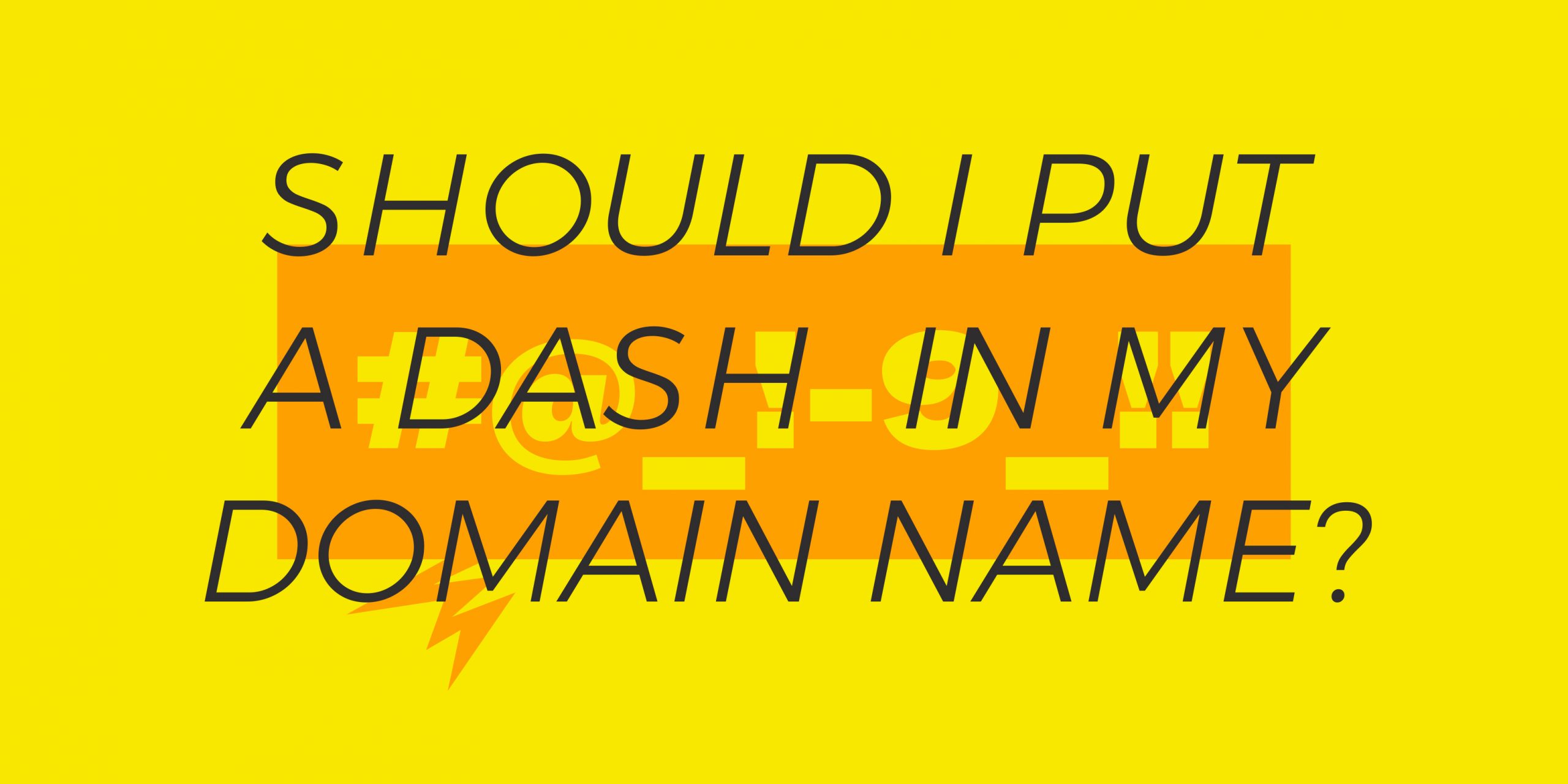Website hosting is an essential piece of building a website. Without it, you have no website, really, since you would have no where to store its files online and no way to deliver content to website visitors.
If you’re looking for what hosting to buy, you’ll probably eventually come across the distinction between a “shared” IP address and a “dedicated” IP address. But if you’re not up on the lingo, you might not know what this means or why it matters.
What’s an IP address?
Let’s start with the most basic concept—the IP address. It’s hard to assess what a “dedicated” or “shared” IP address is if you don’t know what this is.
The “IP” in the term “IP address” stands for “Internet Protocol.” That refers to the basic underlying protocol that connects computers together on the internet. Simply put, an IP address is an address on the internet. IP addresses are a series of numbers that correspond to a particular computer connected to the internet that makes it possible for other computers to find it in the network of networks that is the internet.
What about domain names?
You might be thinking that when you browse the internet, you never have to find a website by knowing any series of numbers. When you navigate to a website, you use a domain name. A domain name is the word plus dot, plus com, net, us, whatever that you type in to a web browser to access a website.
This is one of those occasions where the difference between the internet and the web counts. The web is an internet application that delivers content on web browsers. The internet is a network of computer networks that predates the web. To throw in a third term, the domain name system is a system that translates machine-readable IP addresses into domain names (that word + dot + com, net, us, etc.) that humans can remember.
It’s important to remember that difference.
What does an IP address have to do with hosting?
If it isn’t already clear from this definition of an IP address, an IP address is essential for hosting your website. Essentially, no matter what you choose for your domain name [ link to choosing a domain name article ], you’ll still need some kind of IP address to link your website to your domain name.
This IP address will tell web browsers what other computer on the internet to connect to to find a hosted website.
That makes the IP address central to web hosting.
How can an IP address be shared?
That raises an important question, then—if an IP address corresponds one-to-one to a location on the internet, and this one-to-one relationship is essential for website hosting, then how is it that an IP address could be “shared”? And who is it shared with?
Well, just because an IP address has a one-to-one relationship with a computer doesn’t mean it has a one-to-one relationship to a website. Just like you can have multiple folders on your own computer, a server—the kind of computer that stores a website—can host multiple websites. It doesn’t have to just host one. Multiple websites could be hosted on the same physical machine with the same IP addresses.
Sometimes there can be 100s of websites using the same IP address.
Previously, having a shared IP used to mean shared hosting. That means that the same resources—memory, processing power, etc.—were shared across multiple, otherwise unrelated hosted websites.
There are clear drawbacks to this approach, since it effectively means that if another website is consuming more resources on the same shared hosting as yours, your website will be slower.
But these days, a shared IP address rarely means that other resources are shared. Today, hosting providers provide dedicated servers or containers behind load balancers tied to a single IP address.
That means that much of the implied disadvantages of a shared IP address are no longer valid.
Why you might want a shared IP address
There are also compelling reasons for using a shared IP address, rather than a dedicated one.
A primary reason is cost. In particular, because IP addresses are a limited resource (IPv4 at least), getting a dedicated IP address often comes a premium.
Another reason has to do with the fact that modern web accelerator and proxy technology is a benefit in combating cyberattacks. These technologies make it easier to mitigate DDoS attacks in particular, but more on that later.
Downsides to having a shared IP address
Most of the downsides previously associated with shared IP addresses, thanks to the fact that most shared IP address hosting no longer uses other shared resources, are no longer applicable.
There are, however, a couple that remain.
Shared IP address and IP reputation
First, if you’re going to use your hosting to send email, it’s important to know about IP address reputation.
With the rise of email spam, service providers sought a means to combat it by blocking it at its origin. This gave rise to a system of qualifying the servers from which emails originate. Because an email address or domain name can be “spoofed,” or faked, the only reliable identifier of an email’s originating server is the IP address.
When an abusive quantity of emails can be identified as originating from a particular IP address, emails from that IP address can get blocked.
That means that when you’re using shared IP hosting for an email sending service, you may be impacted by the activity of the other services that use the same IP address. Even if none of you are sending an abusive quantity of emails yourselves, a poorly timed coincidence could impact the IP’s reputation.
Shared IP address and DDoS attacks
On the other side, sharing an IP with other websites means that you’re also vulnerable to a type of attack targeted at other websites on the same IP address—a Distributed Denial of Service attack, or DDoS.
A DDoS attack works by overwhelming a single server on the internet with so much traffic that it cannot handle it all. This is accomplished through distributed “botnets” (that often use internet-connected devices). Internet-connected devices are used to flood a server with enough illegitimate requests so that legitimate ones don’t get through.
Since sharing an IP address can mean that a single server is responsible for routing traffic, using shared IP address hosting might expose you to attacks on other websites using the same IP address. Even if you’re not the actual target, you could be collateral damage in such an attack.
Does a shared IP address hurt SEO?
One thing that’s often cited as a downside of shared IP addresses is the misconception that spammy websites on the same IP address as you can cause Google and other search engines to downgrade your website’s ranking due to using the same IP address.
This myth has created the false common sense notion that a shared IP address is bad for SEO. This is not the case. As with most “inadvertent” signals, shared IP has no impact on SEO.
What’s a dedicated IP address?
In contrast to a shared IP address, a dedicated IP address refers to web hosting in which each hosted website has its own IP address that no other website shares (or any other resource for that matter).
It’s fairly self-explanatory, but it really only makes sense in contrast to the concept of shared IP address. Suffice it to say, there are certain situations and certain implementations in which a dedicated IP address might be best.
Why you would want a dedicated IP address
Previously, the main justification for getting hosting with a dedicated IP address was to benefit from the advantages of dedicated server resources.
These benefits included being able to access the website without first linking it to a domain name, and faster load speeds.
However, most of these are now available even for shared IP address hosting, since the IP address has been separated from the resources behind it using load balancers, as mentioned above.
The main advantage remains for sending email, since having a dedicated IP address enables you to manage your IP address reputation yourself.
Downsides of having a dedicated IP address
The biggest potential downside to dedicated IP address hosting is that it can cost a bit more than shared IP address hosting. One big reason for that is that IPv4 addresses are limited and it’s still not entirely feasible to run hosting with only IPv6 addresses.
The other big downside to dedicated IP address hosting is that even with a dedicated address, you’ll still need to hide it behind a shared IP address proxy like Cloudflare in order to avoid and mitigate DDoS attacks.
Dedicated IP address vs. Shared IP address
The distinction between dedicated IP address hosting and shared IP address hosting is one that you’re likely to encounter when looking for website hosting online.
An IP address is the machine-readable address of a particular computer on the internet. Specifically, in the context of web hosting, the IP address is required information for identifying your web hosting server and link it to your domain name.
A shared IP address for hosting means that multiple, unrelated websites use the same IP address for their website hosting. While at one point, this used to also entail that web hosting server resources like CPU, bandwidth, and memory were also shared, this is no longer the case. Thanks to web accelerators and proxies, shared IP address hosting can also guarantee fully independent and isolated website hosting.
That means many of the disadvantages that used to come along with shared IP address hosting in terms of shared resources are no longer applicable. That’s not to say it’s not without its potential drawbacks. Chief among them are the difficulty of managing IP address reputation for email sending and the potential for DDoS attacks. There is, however, no impact on SEO from using a shared IP address vs. a dedicated IP address.
This is especially relevant due to the fact that a dedicated IP address could entail a higher cost than a shared IP address.
Ultimately, shared IP address hosting is most likely the best option, unless you need to send emails and are worried about managing your IP address reputation. Importantly, a dedicated IP address doesn’t impact your website’s SEO.
At Gandi, we have options that enable you to host your website with a shared IP address as well as with a dedicated IP address. Our basic web hosting option uses a web accelerator, providing the benefits of a shared IP address. This type of web hosting at Gandi also comes with a domain name, 2 free email addresses, and a free SSL certificate.
If you’d prefer a dedicated IP address, you can get one when you host using GandiCloud VPS. GandiCloud VPS gives you the ability to host on the cloud with a virtual private server. With GandiCloud VPS, you control your hosting infrastructure, from the operating system on up.
Tagged in CloudSimple Hosting



